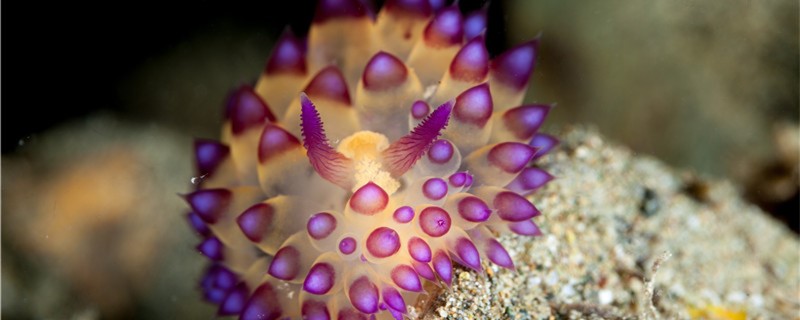
Sea slugs are also called "sea unicorns".In terms of classification, sea slugs belong to the genus Aplysia, Opisthobranchia, Gastropoda, Mollusca.Therefore, sea slugs are mollusks.From the outside, the outer shell of the sea slug has degenerated into an inner shell, which is very thin and fragile, and the color of the outer shell is white.Their soft body parts are turned outward and can even wrap around their shells.The head of a sea slug is so large that it occupies about half of its body.Sea slugs breathe through skin gills on their skin.
From the point of view of living environment, sea slugs live in the ocean, so the name contains "sea".Specifically, they are widely distributed in the world's oceans, even in the cold polar waters.Sea slugs are sometimes found in relatively deep sea water, even at depths of 5000 meters.From the point of view of feeding habits, the main food of sea slugs is all kinds of algae, and they eat different algae plants will have different colors.For example, when they eat red algae, their body color will change to red; When they eat the bladderwort, their bodies turn brownish green.
Sea slugs belong to the class Gastropoda of the phylum Mollusca, so they belong to animals, and they are mollusks, not plants.As mollusks, some characteristics of sea slugs are also obvious.For example, their bodies are relatively soft, and their motor organs are feet, and their activities are relatively slow.
。